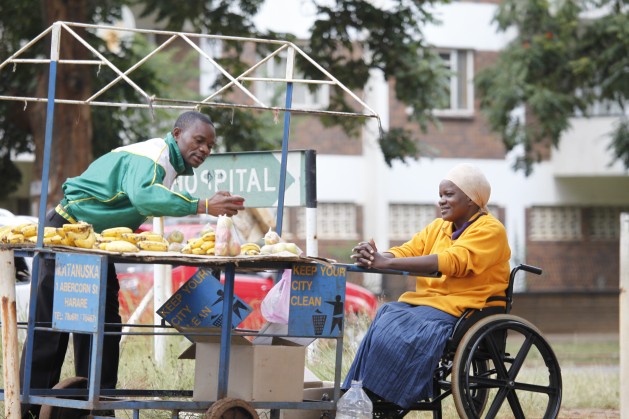
There are between 1.2 million to 2 million people with disabilities in Zimbabwe. Most of them are self-employed (vendors) in the informal sector and live from hand to mouth.
Due to COVID-19, the informal sector has been closed for the most part since March 2020, when the country first went into lockdown. In addition, demand for the services and products in the informal sector slowed down due to travel restrictions and misinformation that second-hand clothes imported from China were contaminated with the virus.
As a result, many vendors with disabilities lost their only source of livelihood and have been struggling to look after themselves and their families over the past year.
Now, amid falling infection rates, the informal sector is slowly opening again. But it will not be easy for everyone to resume their operations, especially people with disabilities.
The informal sector was disrupted for close to a year and many vendors were unable to buy new stock or do business during this period. Most vendors have sold off the stock that they had before the lockdowns or they used it in their households over the past year. In addition, most vendors have used the money or savings they had before the lockdowns to look after themselves and their families during lockdown. It is also worth mentioning that some people with disabilities had to purchase essential medicine using proceeds from their vending activities during this period.
Thus, many vendors cannot easily resume their operations because they do not have the stock or money to buy stock.
They cannot just pick up from where things were last year, they need to start all over again.
To start all over again, many vendors with disabilities require support in the form of capital for restocking purposes. For sustainability, support can also be in form of capital to grow small to medium enterprises. This will enable them to trade at a bigger scale and earn more money. If support is rendered to their means of survival, they will be in a better position to look after themselves and their families in the long run.

This is the right blog for anyone who wants to find out about this topic. You realize so much its almost hard to argue with you (not that I actually would want…HaHa). You definitely put a new spin on a topic thats been written about for years. Great stuff, just great!